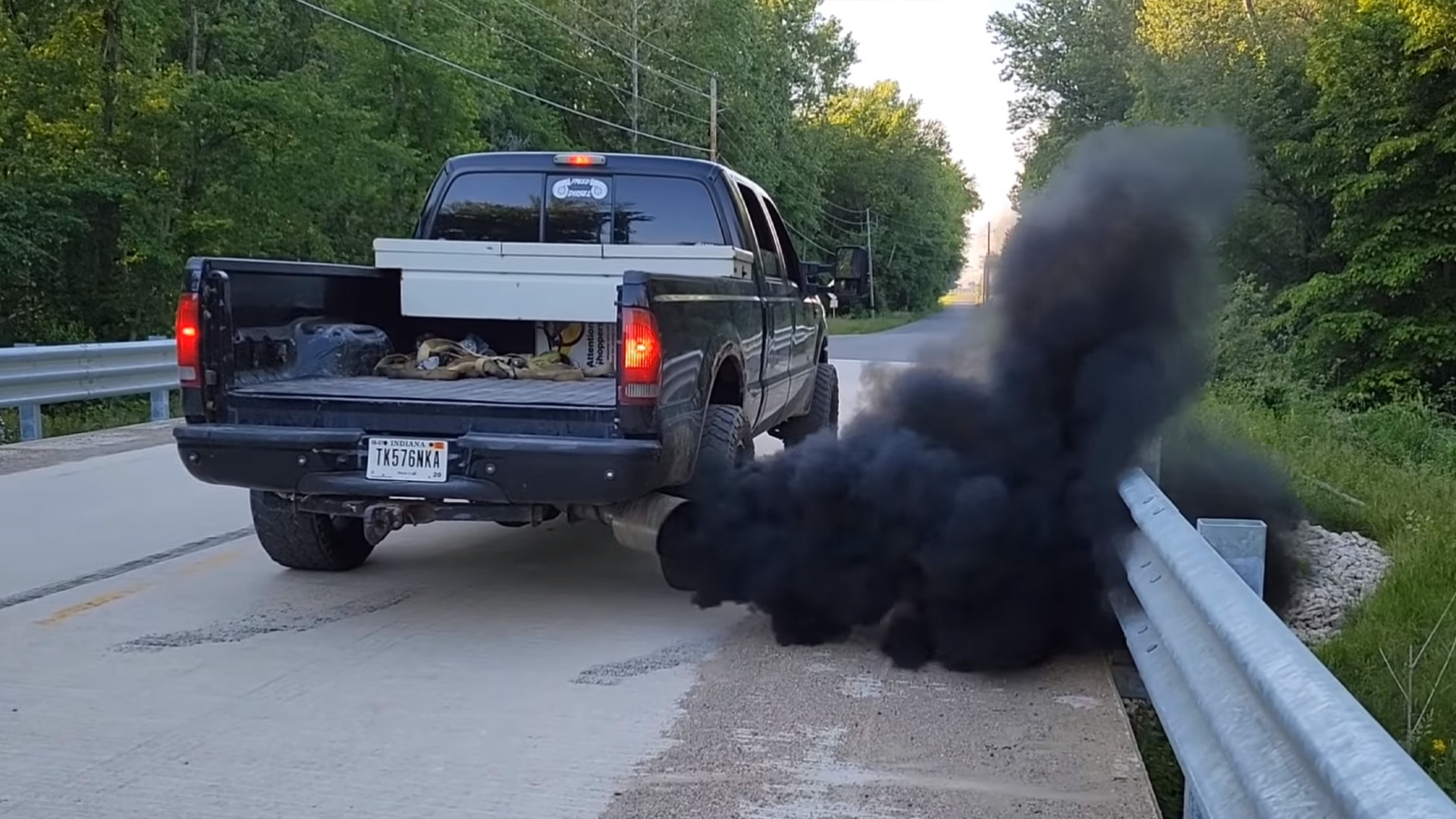

Yet another tuning shop has been fined as part of the U.S. Environmental Protection Agency’s ongoing war on diesel emissions defeat devices. At the receiving end of the punishment this time around is California-based Sinister Diesel, which will pay $1 million in both criminal fines and civil penalties.
According to the U.S. Justice Department, Sinister Manufacturing—the parent company of Sinister Diesel—pleaded guilty in Federal court to two separate counts both related to wilful violations of the Clean Air Act.

Sinister Diesel is one of many diesel-oriented performance companies in the United States. Like many of these shops, Sinsiter sold devices, tuners, and software that allowed owners to convert otherwise emission-compliant trucks into coal-rolling, exhaust-spewing nuisance machines that really do give auto enthusiasts a bad name. And in case you haven’t been paying attention, the EPA really doesn’t like that—so it’s turned its sights towards the companies manufacturing and selling these defeat devices.
Its most recent crackdown is on Sinister Diesel. Earlier this week, the company entered into a plea agreement as part of a joint investigation by the EPA and FBI. The company was charged with conspiracy to violate (CAA) and defraud the United States, as well as a second CAA violation by “tampering with the monitoring device of an emissions control system of a diesel truck.”
Essentially, the Clean Air Act prohibits anyone from manufacturing or selling any devices that bypass, defeat, or “otherwise render inoperative” emission control devices. This isn’t anything new—a number of manufacturers sell tuning devices that technically fit this bill, and the EPA has gone after companies that sell these types of components time and time again. It’s even levied penalties against TV hosts like Discovery’s Diesel Brothers.
The EPA alleges that Sinister did exactly that when it sold tuning devices that allowed diesel owners to roll coal and bypass emissions devices. The shop is also accused of bundling hardware delete kits and software “delete tunes,” sometimes bundled with hardware manufactured by other companies, with the sole intention of profiting from violations of the CAA. Prosecutors also allege that not only did Sinister supply the devices and software tunes, but the shop also instructed owners on how to evade state emission tests by removing and reinstalling its products.
Sinister did note that its products were intended for “racing” and off-road use only. However, prosecutors say that the company knew that most of its products were being sold with the intention of being used on the road.
Between October 2015 and July 2017, Sinister’s sales data indicates that it sold nearly 36,000 defeat devices that disabled a vehicle’s EGR system. As much as 25% of the company’s revenue was being made from its defeat products alone at one point in time. Sinister agreed to pay $500,000 for the civil and criminal counts against it as part of the agreed-upon settlement—totaling $1 million. In November, the company will be sentenced officially for each count where it will face “a maximum fine of $500,000 or twice the gross pecuniary gain derived from the offense,” according to the Justice Department.

Prosecutors say that Sinister sold these defeat devices for nearly a decade—from its incorporation in 2010 until April 2020. In 2015, the company entered into a separate settlement with the California Air Resources Board for violating California’s anti-tampering laws by selling tuning devices, exhaust gas recirculation delete kits, and diesel particulate filter delete devices. Sinister agreed to pay $651,450 as part of the 2015 settlement.
“Sinister Diesel sold products that allowed drivers to strip the emissions controls from their trucks, causing a dramatic increase in the release of pollutants that worsen air quality and harm the quality of life,” said Phil Talbert, U.S. Attorney for the Eastern District of California, in a statement. “Environmental laws that control diesel pollution are especially important to protect sensitive populations such as the young, the elderly, and people who suffer from respiratory conditions. My office will continue to vigorously prosecute those who place profit above the public’s health and the environment.”
Separately, Sinister has a history of being rather litigious. In 2018, the company developed a customer delete (at least in several diesel performance circles) by trademarking the color blue and reportedly sending cease and desist letters to other companies that used blue-colored diesel performance parts. Sinister attempted to clarify that the threatening legal letters sent out were required to keep its newly-issued trademark, which it sought due to the rise in counterfeit goods.

The EPA’s not-so-silent war on coal rolling and illegal diesel emission modifications isn’t without warrant. In a 2022 study, the agency’s Air Enforcement Division wrote that it believes around 500,000 diesel pickups on the road—or around 15% of diesel pickups on the road—have had their emission controls illegally deleted. In fact, the EPA says that these half-million trucks were producing the emissions equivalent of 9 million properly-muzzled pickups.
It’s unlikely that we will see the EPA let up on these types of prosecutions. In fact, California recently started cracking down on non-approved ECU tunes during state inspections, and if the EPA follows CARB’s guidance like it typically does, that could mean bad news for tuned gas-powered cars in the future.
Got a tip or question for the author? Contact them directly: rob@thedrive.com